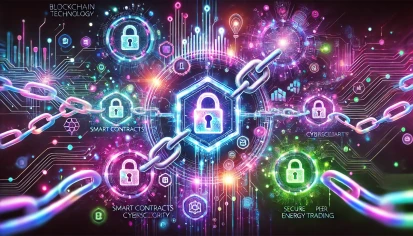The Future of Gaming: Blockchain Technology in Action
Welcome to the exciting intersection of technology and gaming! In recent years, there has been a significant shift in how games are created and played, largely due to the emergence of blockchain technology. This article will delve into the fascinating world of blockchain gaming, explaining its mechanics, advantages, challenges, and what it means for gamers and developers alike.
What Is Blockchain Gaming?
Blockchain gaming is a revolutionary concept that integrates blockchain technology into video games. In simpler terms, it allows players to earn tokens and own digital assets securely. The idea took off in 2020, particularly with games like Axie Infinity, which popularized the play-to-earn (P2E) model, rewarding players for their commitment and gameplay.
A Rapidly Growing Market
Despite facing challenges, such as a significant hack in 2022 and a user decline, blockchain gaming has shown immense potential. The market was valued at approximately $4.83 billion in 2022, and it is projected to grow at a remarkable rate of 68% by 2030. This promising trajectory indicates that blockchain gaming is here to stay!
Key Features of Blockchain Games
Let's explore some of the key features that define blockchain gaming:
- Decentralization: Unlike traditional gaming systems managed by single entities, blockchain games are often maintained by decentralized autonomous organizations (DAOs), allowing players to have a voice in governance.
- Interoperability: Many blockchain games now allow players to interact with each other across different games, enhancing the user experience.
- In-game Asset Ownership: Players can earn, trade, and sell in-game assets, referred to as Non-Fungible Tokens (NFTs), on decentralized marketplaces.
- User Control Over Data: One of the standout features of blockchain games is the player's ability to maintain portability over their in-game data, allowing seamless transfer across different platforms.
How Blockchain Works in Gaming
Blockchain plays a critical role in enabling secure in-game transactions, asset creation, and funding through initial game offerings. NFTs act as unique digital assets, ensuring proof of ownership and authenticity. Thus, players can confidently invest in virtual items, knowing that their ownership is verifiable on the blockchain.
Metaverse Games: An Immersive Experience
As an extension of blockchain gaming, metaverse games create immersive, interactive environments where players can engage in real-time activities. For example, in Decentraland, players can buy virtual land, participate in community governance, and create their own experiences.
Comparing Blockchain Games to Traditional Games
When comparing blockchain games to traditional games, several notable differences and advantages emerge:
- Asset Ownership: Unlike traditional games where players do not truly own their in-game items, blockchain gaming allows players to possess and trade their assets securely.
- Community Governance: Many blockchain games offer players a say in game development decisions through decentralized governance structures.
- Challenges to Overcome: Despite their advantages, blockchain games face hurdles like user knowledge barriers, network scalability issues, and often lag behind traditional games in terms of graphics and gameplay.
Future Considerations for Blockchain Gaming
The future of blockchain gaming is bright, but it must navigate some challenges. For instance, user education is essential, as many traditional gamers are unfamiliar with blockchain concepts. Moreover, regulatory frameworks are still being established, and enhancing gameplay quality will be pivotal in attracting conventional gamers.
As these hurdles are tackled, the relationship between virtual realities and blockchain technology is expected to grow, further facilitating the ownership and trading of digital assets.
Key Components of Blockchain Gaming
Here are some essential components that characterize blockchain gaming:
Transformative Benefits of Blockchain Technology
The transformative benefits of integrating blockchain technology into gaming are numerous:
- Secure Transactions: Transactions involving in-game assets are secure and transparent, reducing the risk of fraud or exploitation.
- Enhanced User Experience: Gamers enjoy smoother interactions with more control over their assets and data.
- Verification of Trades: Blockchain provides a transparent record of trades, enhancing trust among players.
Challenges Faced by Blockchain Gaming
While blockchain gaming shows immense promise, challenges persist. Complexity can hinder player adoption, and regulatory hurdles may impact how games are developed and marketed. Competition from established, traditional gaming companies also remains a significant barrier.
Successful Examples of Blockchain Games
Several successful blockchain games have emerged, proving the concept of blockchain gaming:
- CryptoKitties: A game that allows players to collect, breed, and trade digital cats. It was one of the first major successes and introduced many to blockchain gaming.
- Gods Unchained: A trading card game where players own their cards and engage in strategic gameplay.
- Decentraland: A virtual world built on blockchain, where users can create, explore, and trade virtual real estate.
The Road Ahead for Blockchain Gaming
As more developers enter the blockchain gaming space, opportunities for innovation will likely expand. The market's growth is expected to continue as players demand new experiences and true ownership of their gaming assets.
Investments in Web3 gaming—a movement toward decentralized gaming—will likely increase, offering players greater control and new financial systems that can integrate seamlessly into gaming experiences.
Conclusion
In conclusion, blockchain technology is fundamentally reshaping the gaming industry. Through decentralized systems, players are empowered to own their in-game assets, engage meaningfully in governance, and enjoy fair rewards for their participation. While challenges remain, the future of blockchain gaming appears promising, offering exciting opportunities for players and developers alike.
Whether you are a seasoned gamer or new to the world of gaming, understanding these developments will help you navigate the evolving landscape. As blockchain gaming continues to grow, it is essential to stay informed and aware of the changes that will shape the future of this dynamic industry.


